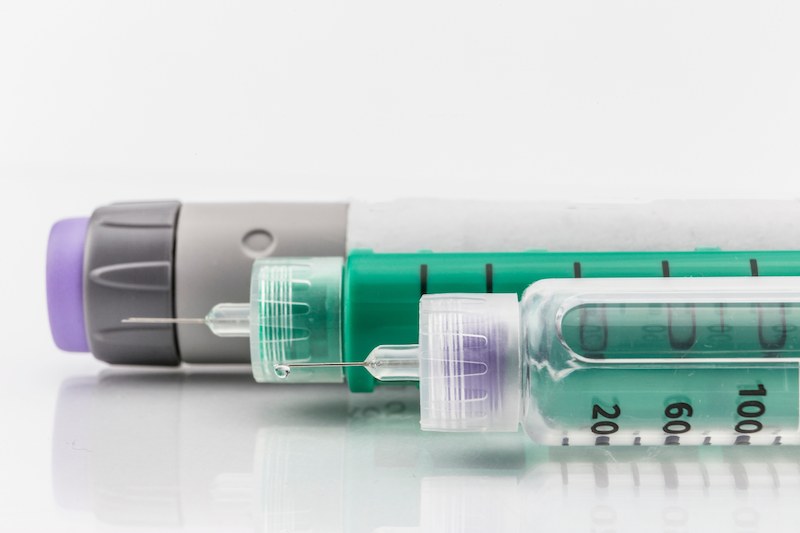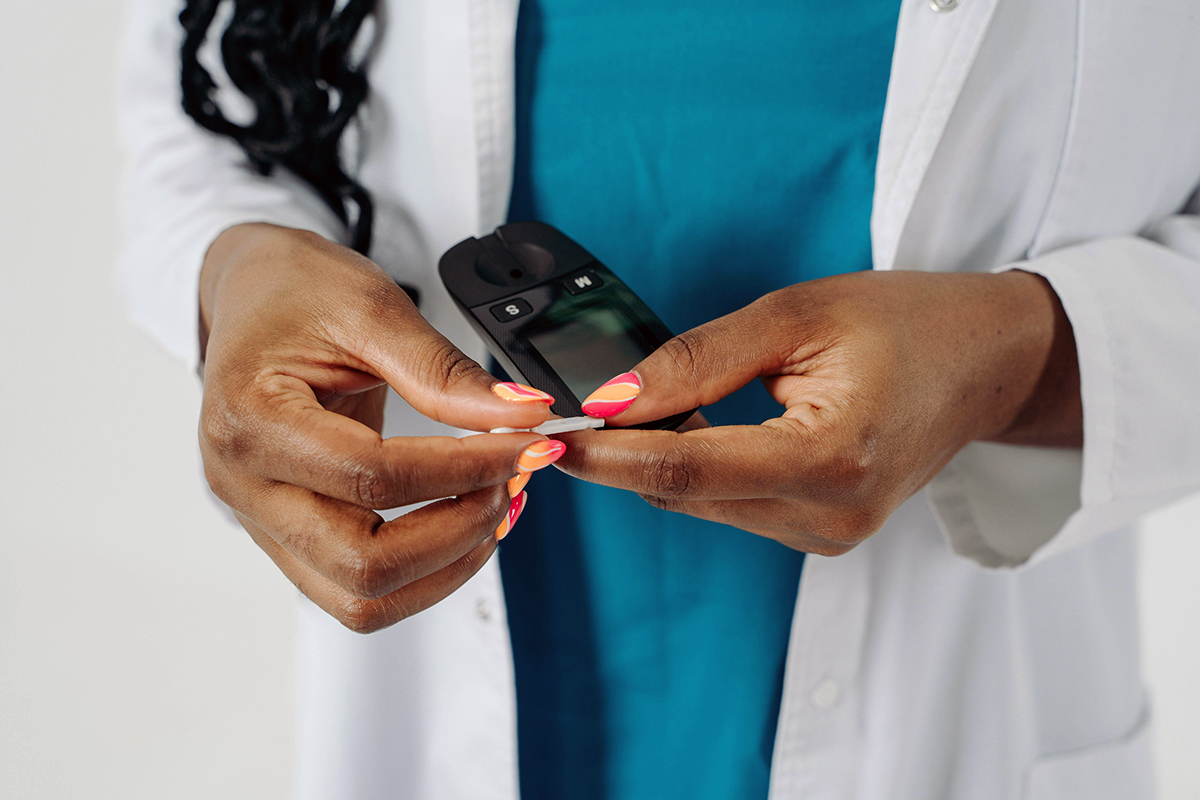Ozempic, Monjaro, Wegovy, Zepbound … GLP-1s are increasingly everywhere. Recent estimates suggest as many as 4% of Americans are now taking one of these medications, perhaps half of those as a treatment for overweight or obesity. The data on the role of these medications in weight loss is fairly clear—many trials point to weight loss in the 15% to 20% range.
In addition to weight loss and diabetes (which was the original disease target), researchers have started exploring the roles of GLP-1s in treating other conditions. A summary paper published last year pointed to a large number of conditions that might be affected by these medications. Some of those conditions, like heart disease, may be ancillary to weight loss. But others, like the positive impacts we are seeing for individuals who have an alcohol addiction, may point to other impacts of these drugs.

GLP-1s are not without side effects (nausea, muscle mass loss) and, beyond that, broader concerns about long-term use. There are particular concerns about the use of these medications in children, even though the AAP has indicated that they may be an appropriate treatment in some cases.
As GLP-1s become more popular, questions have arisen about their use in pregnancy and breastfeeding, and we are slowly getting better answers. One thing to say up front is that it is generally agreed that these medications should not be taken on purpose during pregnancy. But this leaves open issues about prescriptions around pregnancy and is particularly complicated by a recent growing body of evidence that suggests going on a GLP-1 might actually help you conceive.
Below, I’ll address some popular questions. If you are looking for a larger take on interacting with your doctors about GLP-1s, please check out this post from Gillian Goddard.
Can going on a GLP-1 help you conceive?
Although much of the talk about GLP-1s and fertility focuses on possible risks, many people also hear the suggestion that these medications might actually help with conception. There are certainly anecdotes from people who struggled with infertility and then got pregnant unexpectedly after starting a GLP-1. Are these just anecdotes, or is there data behind them?
The short answer is that, in some cases, this does seem like it may be evidence-based.
One reason is that these medications may make oral contraceptives less effective. The UK has recently issued a warning to this effect, suggesting that the slowing of metabolism with the medication may also impact how well birth control works. We do not have definitive evidence on the size of this effect, but if you are not planning pregnancy and you are using oral contraceptives, it is worth discussing with your doctor.
In addition, there is increasing evidence that these medications might help conception for women who are struggling to conceive.
The clearest case is for people with PCOS (polycystic ovarian syndrome). This is a very common cause of infertility. A number of studies have shown that treatment with GLP-1s can improve menstrual regularity and, therefore, possibly play a role in treating infertility.
Beyond PCOS: When looking at the success of IVF, a review of studies suggests a higher BMI is associated with a lower likelihood of success. To be clear, this effect may be correlation and not causation, but if true, it would provide a reason why going on a GLP-1 might impact fertility.
Overall, this is one of the places where we clearly need more data, but if you are hoping to get pregnant (especially if you are diagnosed with PCOS), this is worth discussing with your doctor.
When should I go off a GLP-1 prior to conception?
Although this is, again, an area of some uncertainty, it is generally recommended that you go off a GLP-1 before trying to conceive. This is not a completely uncomplicated choice, especially if you are on this for diabetes control or (see above) to treat PCOS. Conception can take time, and it is possible that it makes sense to continue the drug.
However, in general, for people who are taking GLP-1s, the recommendation is to go off before trying to conceive. How long before? The half-life of these medications is five to seven days, and it takes four to five half-lives for a medication to completely leave the system. This means that if you want to make sure the medication is out of your system before conception, you want to stop taking it four to five weeks before trying to conceive. If you do that, you can be confident the medication is out of your system.
What if I get pregnant accidentally on a GLP-1?
There have been enough accidental pregnancies while on GLP-1s that popular media has coined a term for this—Ozempic babies. These pregnancies may simply reflect that accidental pregnancies do happen (overall, about 40% of pregnancies in the US are unintended), but it’s possible that they are more common because of the potential impacts on fertility, as discussed above. If these medications restore regular ovulation and menstruation, some women who thought they were not fertile may unexpectedly find themselves pregnant.
We do not have enough on this, but the data we do have does not suggest significant concerns with the accidental GLP-1 pregnancy. The largest study of this type was published in 2023 in JAMA Internal Medicine. In this study, researchers used data from over 3 million pregnancies across a number of countries. Within this set, they had over 50,000 women who had type 2 diabetes preconception and about 1,000 who were treated with GLP-1 medications. The authors found no evidence of elevated risk of birth defects among those who were treated with GLP-1s relative to the baseline rate in type 2 diabetics.
A smaller study—168 exposed pregnancies—showed the same result. There was no elevated risk of birth defects in pregnancies exposed to GLP-1s.
The evidence we have here is best summarized by saying that it does not appear that these medications are significantly teratogenic (cause birth defects). We are likely to learn more as time passes, although it is important to note this learning will likely continue to rely on accidental pregnancies. For ethical and other reasons, I do not expect we will see randomized trials of GLP-1s during pregnancy.
Can I use GLP-1s during breastfeeding?
Many people have put off these medications during pregnancy, but once pregnancy is over, they would like to consider them. But breastfeeding can last a long time—what if you’re nursing for two years? Is there a point at which using a GLP-1 is okay?
There are two primary worries about taking a GLP-1 while breastfeeding. The first is that the medication might pass through into your milk and affect your baby’s appetite and weight gain. Recent small-scale evidence suggests this may not be a significant concern. A 2024 study of eight women using GLP-1 medications showed no evidence of transfer into breast milk.
The second worry is that your milk supply might decrease if you consume fewer calories. This is difficult to evaluate since individual response is likely to vary, and overall milk supply varies. What we can say is that this is a more significant concern with a newborn than with an older baby or child because the milk supply may still be establishing itself, and this is the only source of calories for the baby. For a two-year-old, breast milk is unlikely to be a significant calorie source.
This is something to discuss with your doctor. They are unlikely to be open to having you use a GLP-1 immediately after birth if you are nursing, but with an older baby, even one that is still nursing, this is more likely to be an option.
The bottom line
- Treatment with GLP-1s can possibly play a role in treating infertility by improving menstrual regularity, especially for people with PCOS.
- However, unless prescribed for PCOS or diabetes, it’s generally recommended to stop taking a GLP-1 before trying to conceive and to allow four to five weeks for the medication to fully clear from your system.
- If you get pregnant accidentally on a GLP-1, it is typically not a cause for concern.
- GLP-1s are generally not recommended during early breastfeeding due to concerns about the medication possibly transferring into breast milk and a decrease in milk supply. Small-scale evidence suggests that the medication is unlikely to transfer to milk. Milk supply is difficult to evaluate, but it is a more significant concern with a newborn than with an older baby or child. Discuss any of these decisions with your healthcare provider.

















Log in
If there’s no concern about getting pregnant while on a GLP-1 and the study shows that it also doesn’t pass into the breastmilk while breastfeeding, why does one need to get off of a GLP-1 if trying to conceive and why can’t one be on a GLP-1 during pregnancy?
I think we need a tremendous amount of data before one can say anything is reasonably safe for pregnancy. I believe there has been insufficient long-term data studying GLP-1s in general and this is something I share often as a PCP.
As more people take GLP-1s, there an increasing awareness of as yet unknown adverse effects on the eyes, irreversible GI disease, depression and suicide risk, etc. A biological system as complex as a pregnant person and her fetus needs way, way, way more than studies involving eight people or even 1000 people. Plus, considering the way that GLP-1s work on a pharmacological level, it stands to reason that it would adversely affect the development of a fetal GI system, with unknown consequences early or later in childhood.